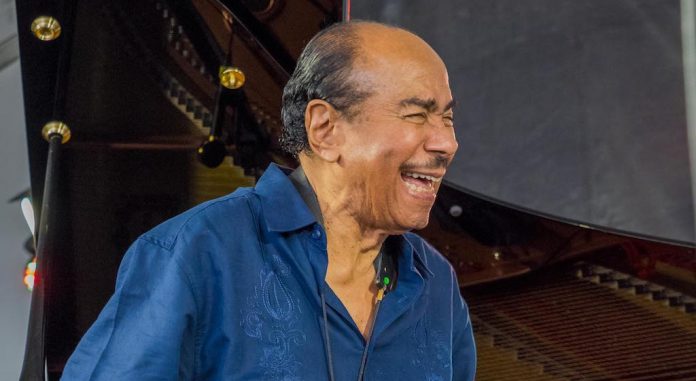
Meetings between giants of different eras are intriguing and often very special.
Lionel Hampton’s style was from the past, but he could play. I remember a gig during my last year with Hampton. We heard someone remark in the audience, “Oh, he’s good, but he’s from the past”. Then our pianist, Walter Davis Jr., said “Hey, what’s that tune from Coltrane, Giant Steps? Let’s play that one”. And Lionel Hampton started to play a faultless and fantastic version of Giant Steps. The mouth of that guy, probably a musician, who said Hampton was basically irrelevant fell open. He couldn’t believe it. Oh, Lionel Hampton could play.
To get back to your writing, you’re on record as saying that you peddled countless tunes without any luck until Miles Davis recorded Stablemates. That changed everything.
That was a lucky strike! Before that, I was like a salesman, knocking doors and bugging everybody with my songs. But nothing happened. John Coltrane knew about my writing. He had left Philadelphia to join the Miles Davis group in New York City. One day I met John and he said “Oh, do you remember that tune of yours, Stablemates? Miles recorded it”. I flipped! I was over the moon.
Miles Davis validated me, brought me to the attention of people through him being an icon. People thought, “Oh, if Miles Davis records tunes of Benny Golson, this guy must be alright”. That’s where my career as a writer took off. I’ve never been out of work since. When I saw Miles a while later, he said “What were you smoking when you wrote that?!” Incredible! It has some unusual changes. Miles used to keep talking about Stablemates through the years. He really liked that tune.
Of Dizzy Gillespie: ‘I thought, I have to tell him what impact he has on me… When I finally complimented him, he was almost embarrassed. “Ah, it’s nothing”. That man, that amazing talent, was so humble’
The following years, you wrote extensively for The Jazztet with Art Farmer. And preceding that, for Dizzy Gillespie, of course.
Yes. But my experiences with Dizzy Gillespie had more to do with playing my instrument. I learned a lot just by listening to him. He was my hero! I had his picture hanging on my wall! I was so impressed. I tried to tell him one day at the end of a performance in Washington D.C. We were the last two to leave the stage. I thought, I have to tell him what impact he has on me… When I finally complimented him, he was almost embarrassed. “Ah, it’s nothing”. That man, that amazing talent, was so humble.
Did you see him play with Charlie Parker? As a matter of fact I was curious if you ever saw Charlie Parker play?
Oh yes. Let me tell you a story. It has to do with John Coltrane again. I wasn’t acquainted with Charlie Parker, just enough to say hello. But I remember the first time I heard him. Coltrane and I were together when we first heard him. The tenor was my instrument and Don Byas was on the same concert, but I was more impressed by the way Parker and Gillespie were playing. We’d never heard anything like that. After the evening concert, Charlie Parker was going to play a late-night gig in a club in Philadelphia. John and I were following him around, hot on his tail. John is saying things like “Can I carry your horn, Mr. Parker?” And I’m asking silly questions like “What kind of mouthpiece do you use, what kind of reed?” Haha! I thought that once I knew the answers, I could sound like him. A bit later we had the exact same types of reed and mouthpiece. When I met John, he said “Well, did anything happen?” I said “No!”. He said “Same here!” We were incredible kids.
You’ve said that meeting Art Blakey was the highpoint of your career. Would you care to explain?
The best experience in my life. This guy couldn’t read music, but he had it in his head. He had a certain way of playing the drums. He wasn’t a technician, like Buddy Rich. He had special qualities. Freddie Hubbard and I were talking about that. When you were playing with Art Blakey, you were infused with something, the things he played. I haven’t experienced that with any other drummer, not Max Roach, not Roy Haynes. Max and Roy are giants, but they didn’t have that… Well, I never gave it a name, it’s ineffable. That thing. We travelled from city to city and Art used to sit in with a local band. The drummer sounded like he was playing kitchenware. When Art Blakey sat in, the music took on another life form.
What was the effect of standing in front of Art Blakey?
I had to change my way of playing. That smooth, flowing style didn’t work. That’s what Hubbard said too. He changes your way of playing. He heard me play and started to give hints on the drums. Then when I didn’t seem to get it he shouted “Get up out of that hole!” Things like that. I played harder after that, with more edge, more strength.
To be continued















